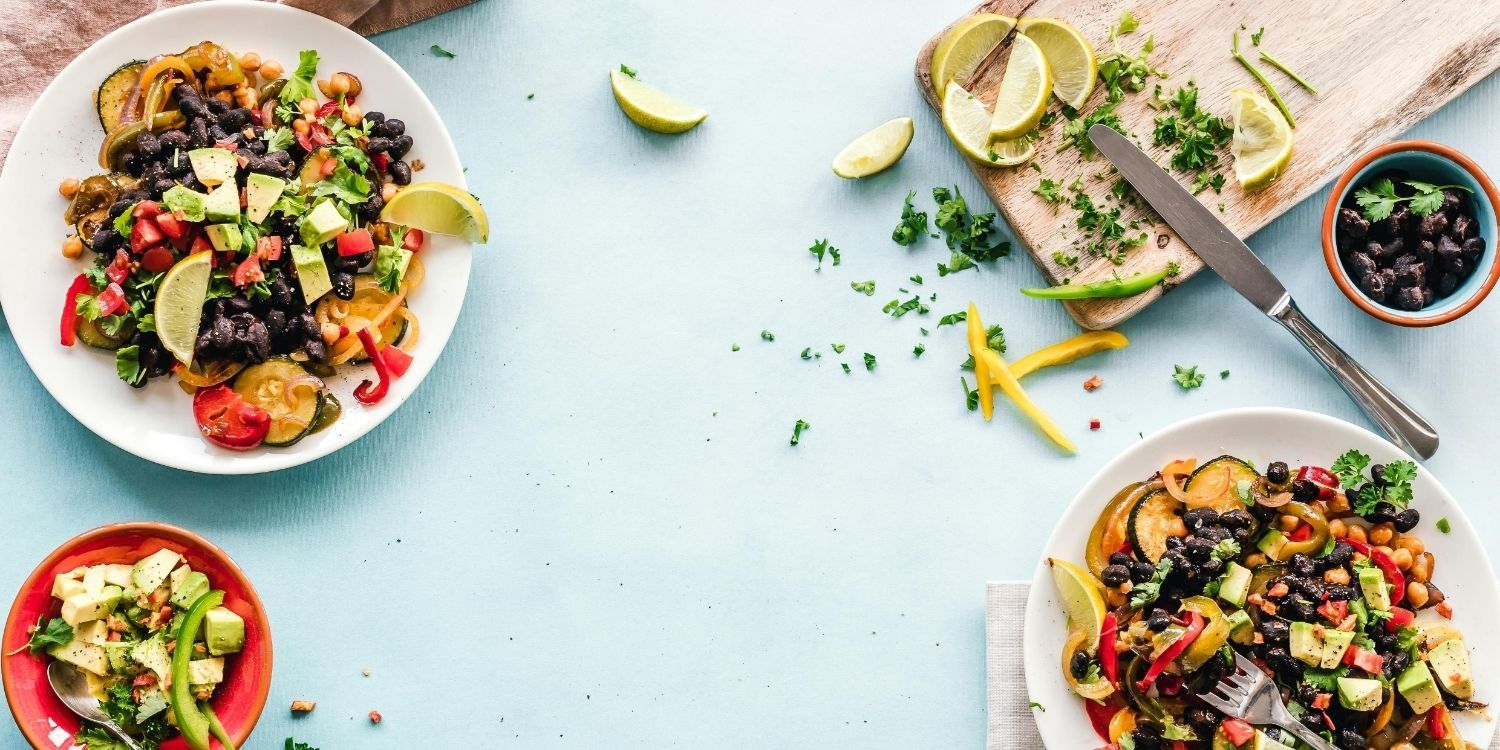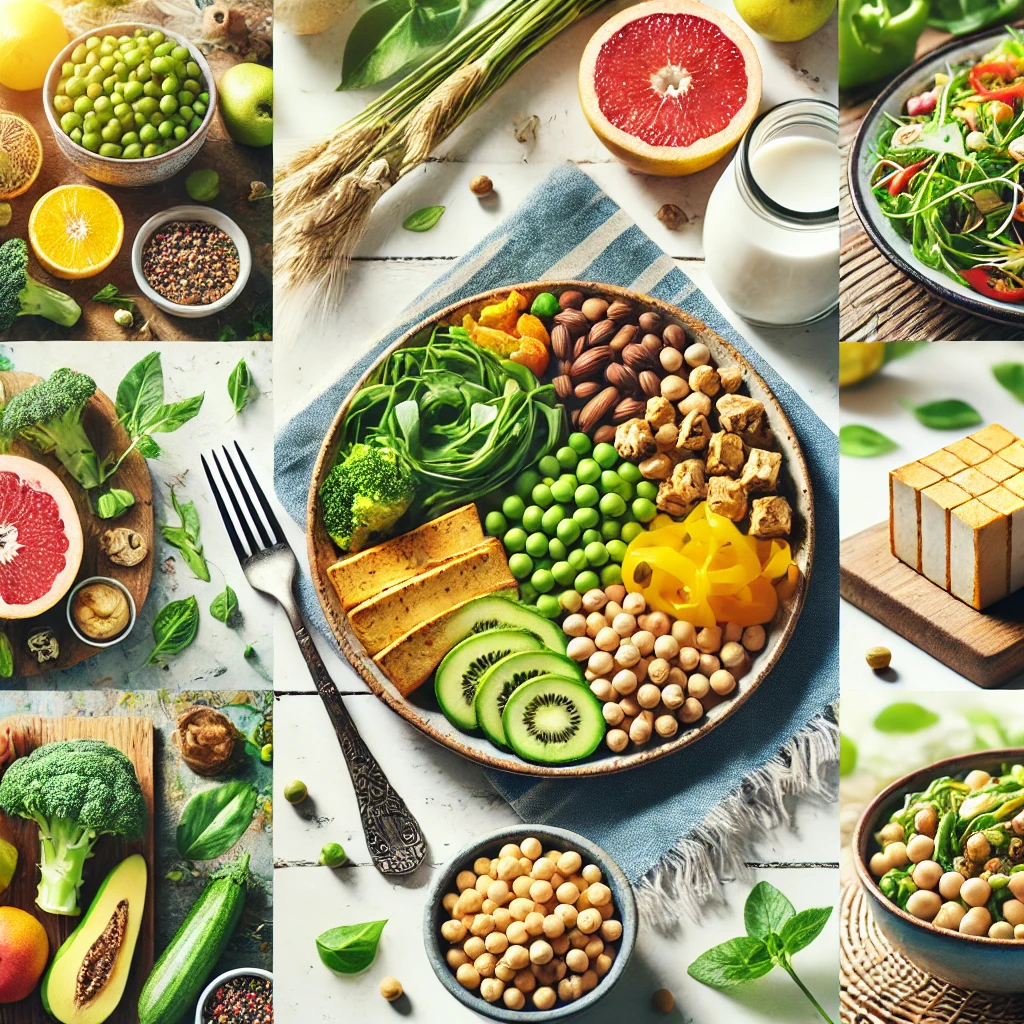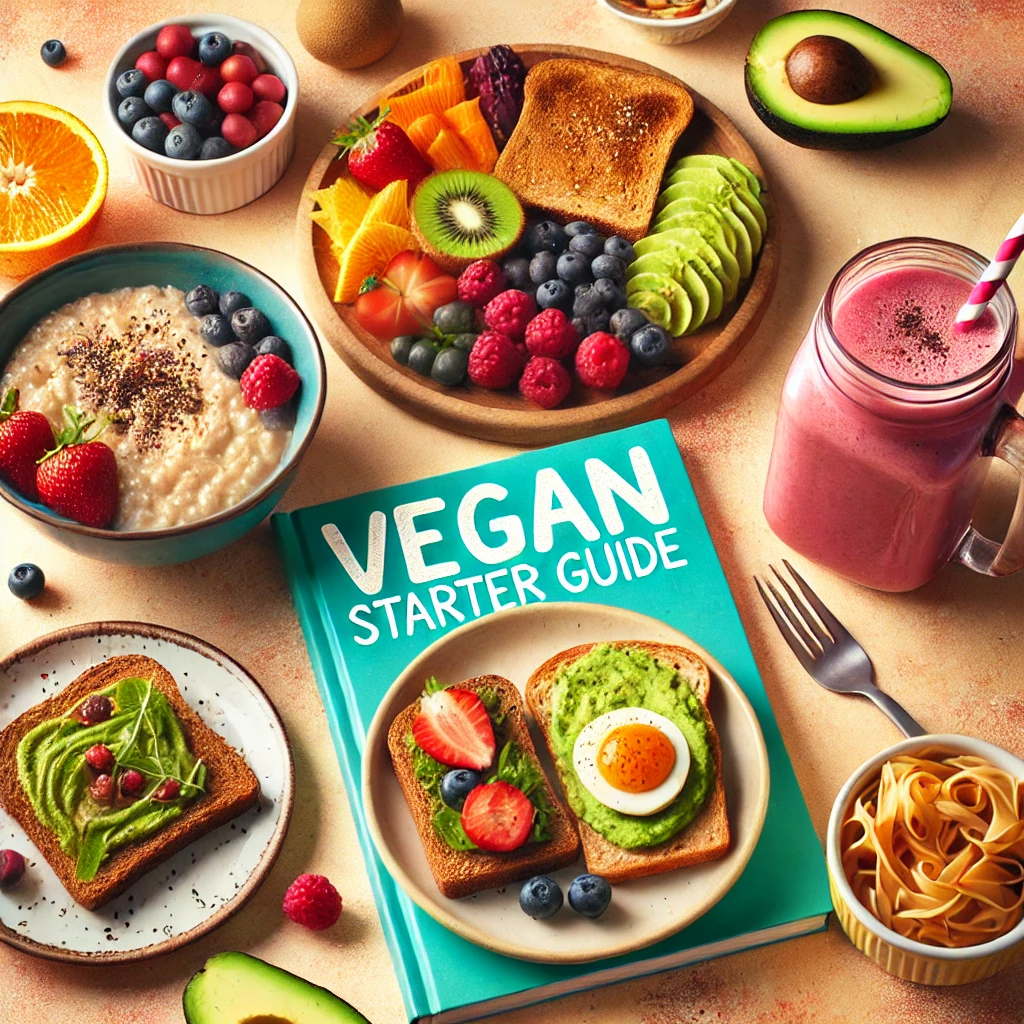In recent years, the vegan diet has surged in popularity, embraced by people for its health benefits, ethical considerations, and environmental impact. A well-planned vegan diet, which excludes all animal products, offers a range of nutritional advantages. This comprehensive guide explains the nutritional benefits of a vegan diet, covering essential nutrients, health improvements, and practical dietary tips to ensure optimal nutrition.
Understand the Vegan Diet
A vegan diet is plant-based, meaning it eliminates all animal products, including meat, dairy, eggs, and honey. Instead, it focuses on a variety of fruits, vegetables, legumes, nuts, seeds, and whole grains. This dietary pattern is rich in fiber, vitamins, minerals, and phytonutrients, contributing to various health benefits.
Key Nutritional Benefits of a Vegan Diet
Rich in Nutrient-Dense Foods
A vegan diet emphasizes whole, unprocessed foods that are naturally nutrient-dense. These foods are packed with vitamins, minerals, antioxidants, and phytochemicals that support overall health.
- Fruits and Vegetables: High in vitamins A, C, and K, potassium, and fiber. They are also rich in antioxidants that help combat oxidative stress and inflammation.
- Whole Grains: Provide essential B vitamins, iron, magnesium, and fiber, supporting energy production, digestion, and heart health.
- Legumes: Excellent sources of protein, fiber, iron, and folate. They are essential for muscle repair, digestion, and preventing anemia.
- Nuts and Seeds: Rich in healthy fats, protein, vitamin E, and minerals like magnesium and zinc. They support brain health, skin health, and immune function.
High in Fiber
Fiber is a crucial component of a healthy diet, and vegans typically consume more fiber than those on omnivorous diets. High-fiber diets are associated with numerous health benefits:
- Improved Digestion: Fiber promotes regular bowel movements and helps prevent constipation.
- Heart Health: Fiber helps lower cholesterol levels, reducing the risk of heart disease.
- Blood Sugar Control: Fiber slows the absorption of sugar, helping maintain stable blood sugar levels and reducing the risk of type 2 diabetes.
- Weight Management: High-fiber foods are filling, which can help control appetite and support healthy weight loss.
Lower Risk of Chronic Diseases
A vegan diet has been linked to a reduced risk of several chronic diseases:
- Heart Disease: Vegans tend to have lower blood pressure, cholesterol levels, and body mass index (BMI), all of which contribute to a lower risk of heart disease. The diet is also low in saturated fats and cholesterol, which are linked to heart disease.
- Type 2 Diabetes: A plant-based diet improves insulin sensitivity and reduces the risk of developing type 2 diabetes. It helps maintain healthy blood sugar levels and supports weight management.
- Cancer: Studies have shown that vegans have a lower risk of certain types of cancer, particularly colorectal and breast cancer. This is attributed to the high intake of fruits, vegetables, and fiber, and the absence of processed meats, which are carcinogenic.
Weight Management
Adopting a vegan diet can be an effective strategy for weight management. Vegans generally have a lower BMI compared to non-vegans. This is due to the diet’s emphasis on whole, unprocessed foods that are lower in calories and higher in fiber, which promotes satiety and reduces overall calorie intake. Also, plant-based diets tend to be lower in calorie-dense, high-fat animal products.
Essential Nutrients in a Vegan Diet
While a vegan diet offers numerous health benefits, it is important to ensure adequate intake of certain nutrients that are commonly found in animal products. Here’s how to meet your nutritional needs on a vegan diet:
Protein
Protein is essential for muscle repair, immune function, and hormone production. Vegans can obtain sufficient protein from plant sources such as:
- Legumes: Beans, lentils, chickpeas, and peas
- Nuts and Seeds: Almonds, chia seeds, hemp seeds, and flaxseeds
- Whole Grains: Quinoa, farro, and brown rice
- Soy Products: Tofu, tempeh, and edamame
Vitamin B12
Vitamin B12 is crucial for nerve function and the production of red blood cells. It is naturally found in animal products, so vegans need to find alternative sources:
- Fortified Foods: Nutritional yeast, fortified plant milks, and fortified cereals
- Supplements: Vitamin B12 supplements are recommended for vegans to ensure adequate intake.
Iron
Iron is vital for oxygen transport in the blood. Plant-based iron (non-heme iron) is less easily absorbed by the body compared to animal-based iron (heme iron). To enhance iron absorption, pair iron-rich foods with vitamin C-rich foods:
- Iron-Rich Foods: Lentils, chickpeas, tofu, spinach, and pumpkin seeds
- Vitamin C-Rich Foods: Citrus fruits, bell peppers, broccoli, and strawberries
Calcium
Calcium is essential for bone health. While dairy products are a primary source of calcium, vegans can obtain it from plant sources:
- Calcium-Rich Foods: Fortified plant milks, fortified orange juice, tofu, almonds, and leafy greens like kale and bok choy.
Omega-3 Fatty Acids
Omega-3 fatty acids support brain health and reduce inflammation. Plant-based sources of omega-3s include:
- ALA (Alpha-Linolenic Acid): Flaxseeds, chia seeds, hemp seeds, and walnuts
- Supplements: Algal oil supplements are a good source of DHA and EPA, the active forms of omega-3s found in fish.
Vitamin D
Vitamin D is important for bone health and immune function. While sunlight exposure helps the body produce vitamin D, vegans can also obtain it from:
- Fortified Foods: Fortified plant milks and fortified orange juice
- Supplements: Vitamin D2 or vegan D3 supplements
Practical Tips for a Balanced Vegan Diet
To ensure you’re getting all the necessary nutrients on a vegan diet, consider the following tips:
Variety is Key
Include a wide range of fruits, vegetables, whole grains, legumes, nuts, and seeds in your diet. This ensures you get a broad spectrum of nutrients and helps prevent deficiencies.
Focus on Whole Foods
Minimize the intake of processed vegan foods and focus on whole, nutrient-dense options. Processed foods can be high in sugar, salt, and unhealthy fats, which can negate the benefits of a plant-based diet.
Plan Your Meals
Plan your meals to ensure you’re getting a balanced intake of proteins, carbohydrates, and fats. Consider using a meal planning app or working with a registered dietitian to create a balanced vegan meal plan.
Stay Informed
Educate yourself about vegan nutrition and stay informed about the best food sources for essential nutrients. This will help you make informed choices and maintain a healthy vegan diet.
Consider Supplements
Depending on your individual needs, consider taking supplements for nutrients like vitamin B12, vitamin D, and omega-3 fatty acids. Consult with a healthcare professional before starting any supplement regimen.
Conclusion
The nutritional benefits of a vegan diet are extensive, offering a wealth of vitamins, minerals, and antioxidants that support overall health and reduce the risk of chronic diseases.
By focusing on nutrient-dense, whole foods and ensuring adequate intake of essential nutrients, a vegan diet can be a powerful tool for promoting optimal health and well-being. Embrace the variety of plant-based foods available, stay informed about your nutritional needs, and enjoy the benefits of a balanced, vegan lifestyle.

William is a dedicated nutritionist and passionate advicer for vegan living, bringing a wealth of expertise to TopVeganDiet.com. With a background in plant-based nutrition and a love for healthy, sustainable eating, he provides valuable insights and practical advice for those interested in adopting or enhancing a vegan diet.



